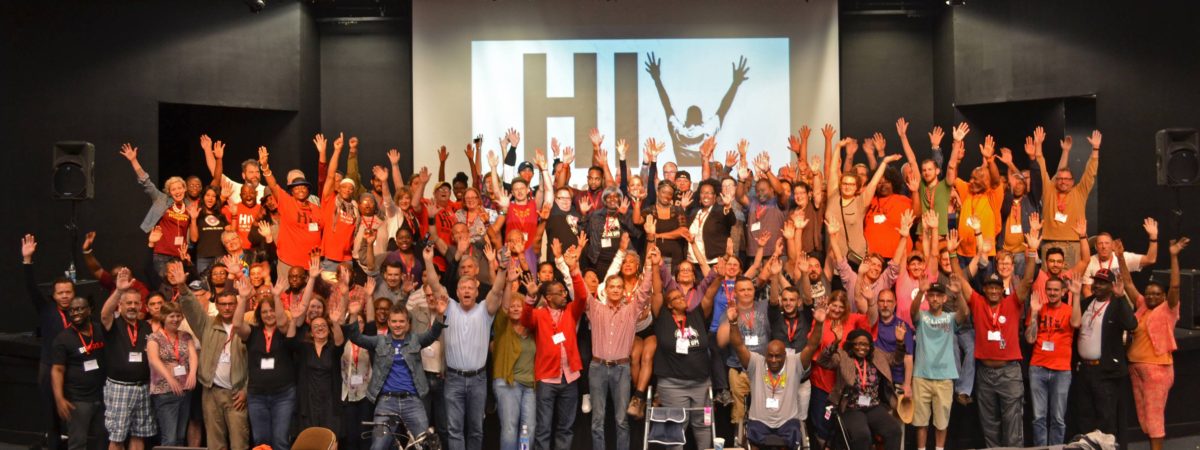
The second HIV Is Not a Crime Training Academy, which took place in May at the University of Alabama, Huntsville, brought together more than 300 advocates from 34 US states, as well delegations from Canada and Mexico.
Organised jointly by two of our HIV JUSTICE WORLDWIDE partners, the Sero Project and Positive Women’s Network–USA, the meeting was a unique opportunity for the people most affected by HIV criminalisation to take centre stage and have their voices be heard.
As Mark S King’s blog post highlighted in his blog and video produced the week following the meeting:
The intersections of race, gender, and sexuality were given as much weight as strategy sessions on working with legislators and lawyers, and the program repeatedly drove home the fact that criminalizing behaviors related to specific groups of people is as American as apple pie. Plenary speakers included advocates for women (including transgender women), current and former sex workers, immigration reform and drug legalization advocates, and, most powerfully, people who have been prosecuted under HIV criminalization statutes.
The theme of intersectionality and what it means for HIV criminalisation advocacy was further explored in this thoughtful analysis from Olivia Ford at The Body.com.
At the first HIV Is Not a Crime gathering in Grinnell, Iowa, in 2014, the sessions focused largely on unpacking the process of mounting a legislative campaign. Huntsville attendees also received training on important skills such as using data and collaborating with attorneys. The dominant theme, however, was the mandate to understand and combat HIV criminalization as a component of the system of over-policing and mass incarceration that disproportionately and unjustly impacts black people, queer folks, immigrants, drug users, sex workers, transgender individuals and those living with and without HIV at the intersections of this constellation of experiences.
The meeting was also an opportunity to celebrate the recent modernisation of Colorado’s HIV criminalisation statutes by the Colorado Mod Squad and their political allies, notably Senator Pat Steadman; and to hear from HIV criminalisation survivors and their families about what the HIV criminalisation – and the movement to end it – means for them personally.
The biggest political coup of the meeting was a welcome video from Hilary Clinton who said that if she wins the Presidential election, she will work to “reform outdated, stigmatising” HIV criminalisation laws.
Aside from those highlighted above, a number of other blog posts and articles have been produced since the meeting. As well as a fantastic Storify compilation by PWN-USA of social media produced during the four days, these include pieces from:
- HIV Plus Magazine
- Human Rights Campaign
- Poz.com (Mark S King interview with Sero’s Sean Strub)
- And participants including HIV criminalisation survivor Monique Howell-Moree; Gail Mahood; Jacob Anderson-Minshall; and Deondre B. Moore.
In addition, the HIV Justice Network was there with our video advocacy consultant, Nicholas Feustel of georgetown media, capturing the entire event on video, and we will be releasing a film providing a detailed overview of the entire meeting, as well as lessons learned, in the next few weeks.